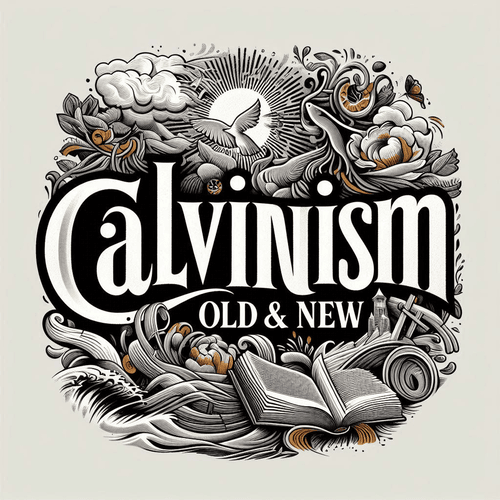Old vs New Calvinism: What’s the Difference?
HOW ‘NEW’ CALVINISM CHALLENGES THE OLD
Imagine a theological tradition that has weathered centuries of cultural shifts, philosophical challenges, and religious debates. This is the story of Calvinism — a rich, complex theological framework that traces its roots back to the Protestant Reformation of the 16th century.
When John Calvin first articulated his understanding of God’s sovereignty in Geneva, he could never have imagined how his theological insights would echo through centuries, eventually giving rise to a modern movement known as “New Calvinism.” But here we are, centuries later, witnessing a fascinating evolution of Reformed thought that’s capturing the imagination of a new generation of believers.
THE ROOTS: OLD CALVINISM EXPLAINED
At its core, traditional Calvinism is built on a profound understanding of God’s absolute sovereignty. Imagine a view of Christianity that places God’s divine plan and purpose at the absolute centre of everything. This isn’t a passive, distant God, but a supreme ruler who is intimately involved in every detail of creation and human history.
The theological framework is often remembered through the acronym TULIP:
- Total Depravity: Humanity’s complete spiritual brokenness
- Unconditional Election: God’s choice of salvation is entirely His
- Limited Atonement: Christ’s death specifically saves the elect
- Irresistible Grace: God’s call cannot ultimately be rejected
- Perseverance of the Saints: True believers will remain faithful
Traditional Calvinist churches were characterised by:
- Rigorous theological education
- Formal worship styles
- Strict adherence to historic confessions like the Westminster Confession
- A somewhat insular approach to cultural engagement
NEW CALVINISM: A MODERN THEOLOGICAL MOVEMENT
Fast forward to the early 2000s. A new generation of Reformed thinkers began to reimagine how these historic theological principles could speak to a rapidly changing world. Leaders such as John Piper, Tim Keller, and Mark Driscoll became the faces of this movement — bringing Reformed theology out of academic halls and into coffee shops, podcasts, and urban church plants.
New Calvinism isn’t about changing the core theological principles, but about reimagining how those principles are lived out. Key characteristics include:
- Aggressive cultural engagement
- Missional approach to community
- Extensive use of digital media and contemporary communication platforms
- Emphasis on practical theology that transforms daily life
- Global mission focus
- More diverse and inclusive leadership approach
COMPARING THE LANDSCAPES
While Old and New Calvinism may seem worlds apart, they share crucial common ground. Both movements:
- Affirm the absolute sovereignty of God
- Hold to the core Reformed theological principles
- Believe in the transformative power of divine grace
The differences lie more in approach than in fundamental beliefs:
- Old Calvinism: Formal, academic, preservation-focused
- New Calvinism: Dynamic, missional, engagement-oriented
IMPLICATIONS FOR THE CHURCH TODAY
This theological evolution isn’t just an academic exercise. It represents a vital conversation about how historic Christian truths can remain relevant in a rapidly changing world. New Calvinism challenges the church to:
- Engage culture without compromising theological depth
- Communicate complex ideas in accessible ways
- Develop a faith that’s both intellectually robust and practically transformative
A UNIFIED THEOLOGICAL VISION
Despite their differences, Old and New Calvinism share a fundamental commitment: to glorify God and understand His sovereign work in the world. They represent different expressions of the same deep theological river — each bringing unique insights and perspectives.
CONCLUSION: FROM IVORY TOWER TO STREET LEVEL
Old Calvinism was primarily an academic exercise. New Calvinism breaks down the walls between theological study and practical Christian living. Instead of treating doctrine as an intellectual puzzle, this movement sees theology as a living, breathing guide for daily life. New Calvinism is also about cultural engagement, not isolation: while traditional Reformed churches often seemed content to remain on the sidelines of cultural conversations, New Calvinism seeks to apply biblical principles to modern challenges and to showing how historic Christian doctrines speak directly into 21st-century contexts.
Whether you’re a longtime Reformed believer or someone curious about Christian theology, New Calvinism offers a compelling vision. It’s a movement that insists God’s sovereignty isn’t a dry doctrine, but a vibrant, transformative reality.
OLD VS NEW CALVINISM: RELATED FAQs
Is New Calvinism just a marketing strategy for making Reformed theology more appealing? New Calvinism is far more than a marketing ploy—it’s a genuine theological movement seeking to make historic Christian doctrines relevant and transformative. While it does use contemporary communication methods, its core motivation is a sincere desire to demonstrate the ongoing significance of Reformed theological principles. The movement represents a thoughtful engagement with culture, not a shallow attempt to make theology trendy.
How do traditional Reformed denominations view New Calvinism? Traditional Reformed denominations have a complex relationship with New Calvinism, ranging from cautious appreciation to outright scepticism. Some see the movement as a welcome renewal of Reformed theology, while others view it as a potentially diluted or sensationalized version of historic Reformed thought. The tension often centres on concerns about theological precision versus cultural relevance.
What role does social media play in the New Calvinist movement? Social media has been instrumental in the spread and development of New Calvinism, serving as a primary platform for theological discussion, community building, and global outreach. Prominent leaders leverage platforms like Twitter, podcasts, and YouTube to reach younger audiences, making complex theological ideas more accessible. This digital approach has significantly expanded the movement’s influence beyond traditional ecclesiastical boundaries.
Are there economic or political implications to New Calvinist theology? New Calvinism often intersects with discussions of economics and political engagement, typically emphasising personal responsibility and a robust view of God’s sovereignty in social structures. While not monolithic, many adherents advocate for a nuanced approach that balances personal accountability with recognition of systemic challenges. The movement tends to encourage active cultural engagement rather than complete withdrawal or uncritical acceptance of existing systems.
How does New Calvinism differ from other contemporary evangelical movements? Unlike some evangelical movements that prioritize individual experience or emotional worship, New Calvinism emphasises theological depth and intellectual rigour. It distinguishes itself through a commitment to systematic theology, a high view of God’s sovereignty, and a desire to connect historic Christian doctrines to contemporary life. This approach sets it apart from both more traditional Reformed circles and more experientially-focused evangelical traditions.
OLD VS NEW CALVINISM: OUR RELATED POSTS
Editor's Pick

Do Christians Need Holy Shrines? Why the Reformed Answer Is No
Walk into a medieval cathedral and you'll encounter ornate shrines, gilded reliquaries, and designated "holy places" where pilgrims gather to [...]

I Want To Believe, But Can’t: What Do I Do?
"I want to believe in God. I really do. But I just can't seem to make it happen. I've tried [...]

BC 1446 or 1250: When Did the Exodus Really Happen?
WHY REFORMED SCHOLARS SUPPORT THE EARLY DATE Many a critic makes the claim: “Archaeology has disproven the biblical account [...]

Does God Know the Future? All of It, Perfectly?
Think about this: our prayers tell on us. Every time we ask God for something, we’re confessing—often without realising it—what [...]

Can Christian Couples Choose Permanent Birth Control?
Consider Sarah, whose fourth pregnancy nearly killed her due to severe pre-eclampsia, leaving her hospitalised for months. Or David and [...]

Bone of My Bones: Why Eve Was Created From Adam’s Body
"This at last is bone of my bones and flesh of my flesh!" Adam's joyful exclamation upon first seeing Eve [...]

Is Calvinism Fatalism in Christian Disguise? Think Again
We hear the taunt every now and then: "Calvinism is just fatalism dressed up in Christian jargon." Critics argue Reformed [...]

Can Churches Conduct Same-Sex Weddings?
In an era of rapid cultural change, churches across America face mounting pressure to redefine their understanding of marriage. As [...]

Gender Reassignment: Can Christian Doctors Perform These Surgeries?
In the quiet of a clinic, a Christian physician faces a challenging ethical question. A patient sits across the desk, [...]

‘What Sorrow Awaits You Who Are Rich…’: What Does Jesus Mean?
The words hang in the air like a sword over comfortable Christianity: “What sorrow awaits you who are rich, for [...]
SUPPORT US:
Feel the Holy Spirit's gentle nudge to partner with us?
Donate Online:
Account Name: TRUTHS TO DIE FOR FOUNDATION
Account Number: 10243565459
Bank IFSC: IDFB0043391
Bank Name: IDFC FIRST BANK






